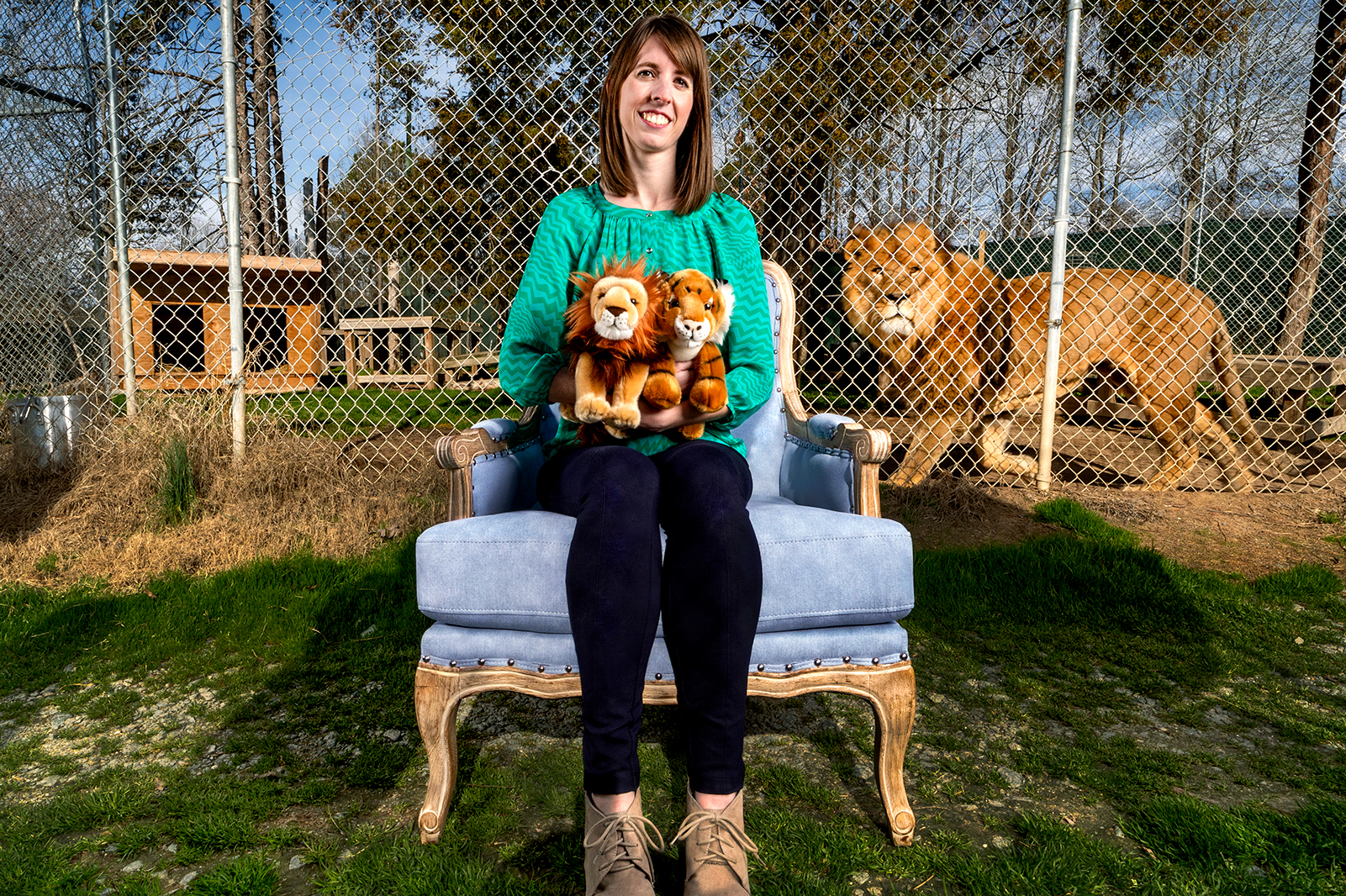This story is part of a unc.edu series that features Carolina’s graduate students who are working to improve the lives of North Carolinians.
Lions and tigers and wolves and more!
That’s what Jordan McNeill was expecting when she visited the Animal Park at the Conservators Center in Caswell County seven years ago. She went to see the big cats. She left with a way to help her community.
Today, as a doctoral student at the School of Education studying special education, McNeill has been using what she has learned at Carolina to help make the park enjoyable and accessible for all.
‘Who wants to work with me?’
McNeill first visited the park when she was working as a special education teacher in Alamance County. Since then, the community zoo, which operates as an educational nonprofit, has become central to McNeill’s identity as a young researcher.
McNeill’s first semester in fall 2017 as a doctoral student in the Applied Developmental Science and Special Education program proved significant. Her seminar with professor Harriet Able — “Translational Research and Implementation Science” — meant that in addition to what she learned in the classroom, she would need to apply research in a way that improved a community organization and the lives of people associated with it.
“Many of the students in the class were from out of state so they weren’t sure exactly what organizations were out there,” McNeill said. “I had a plan. I have an organization. Who wants to work with me?”
She recruited two classmates in the occupational science doctoral program, including Susan Szendrey and Amanda Carroll, and together they conducted a needs assessment and came up with ways to make the park more accessible. A single question guided them: How can we help everyone — regardless of disability — access everything the park offers?
The park had already done a great job complying with the requirements of the Americans With Disabilities Act. But more could be done.
“Unlike a lot of zoos, you don’t just wander the park, and you get to see the animals from five feet away,” she said. “We operate with guided tours because education is a primary part of the park’s mission. There’s a lot of opportunity to make accommodations for people with special needs. A tour guide has the power to make a tour more tailored to you, and for a lot of people that means a more accessible experience.”
After that first semester, McNeill and Szendrey continued the project, implementing some of their recommendations — including providing accessibility training sessions to staff members and volunteers.
That summer, a Community Engagement Fellowship from the Carolina Center for Public Service helped McNeill and Szendrey continue their work in the park. Now, two years since that first class, they’re still at the park, finding new ways to make the park more accessible and to enhance the educational experiences of its visitors.
Research that matters
Even as McNeill’s doctoral studies come to a conclusion, she continues to give tours at the park. Soon she’ll do so with voice amplification, an accessibility improvement that will help all members of tour groups, including people with hearing impairments, those at the back of the group, and even the tour guide.
While McNeill’s dissertation won’t focus on her work at the Animal Park, it will benefit from her experience there, taking a reciprocal, community-based approach to research, she said. McNeill plans to work with special education teachers to understand their perceptions of the evidence-based best practices and interventions provided by researchers and then to provide them with tools to best implement — and potentially adapt — those practices.
“I want to be a researcher whose work really matters, whose work will make its way into schools and beyond schools,” McNeill said.
